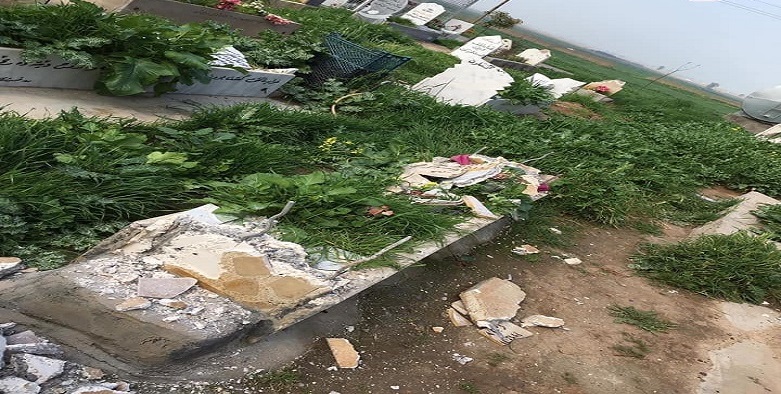Iraqi Human Rights Commission condemns attack on sanctity of Kakai cemetery

ERBIL (Kurdistan 24) – The Iraqi Human Rights Commission on Monday condemned an assault on a cemetery belonging to the Kakai religious community in the Safiya area of the Gwer sub-district, a region disputed between the Kurdistan Regional Government (KRG) and the Federal Government of Iraq.
Sources in the area said unidentified men sabotaged several sites on Sunday evening at the Pankan graveyard, which belongs to the Kakai minority, located within the borders of the disputed areas between Erbil and Baghdad.
“Such incidents aim to stir conflict and compromise peaceful coexistence between the different components and factions, and the Human Rights Commission will form a special team in its office in Nineveh to investigate the events,” Basma Mohammed, a member of the Human Rights Commission council, said in a statement.
Mohammed emphasized the need for an “independent and transparent investigation to find those who violated human and moral norms and bring them to justice.”
Earlier on Monday, Jalil Tufiq, the Head of the Kurdish Kakai Cultural Center in Erbil, called on the KRG and central government in Iraq “to conduct an urgent investigation” into the incident.
Meanwhile, the KRG’s Ministry of Endowment and Religious Affairs strongly condemned the incident, calling on authorities to arrest those responsible as soon as possible.
Kakais follow Yarsanism, a religion founded in the late 14th century in what is now western Iran. The Kakais primarily live in Iran, Iraq, and Turkey. Members residing in the Kurdistan Region and Iraq’s disputed territories are usually considered to be Kurdish.
Having suffered religious persecution from multiple directions, both historically and in recent years, members of the Kakai community have often sought to avoid attention by keeping their practices secret.
The Kakais are among the many minorities in Iraq the so-called Islamic State systematically targeted during the terror group’s rise in 2014. However, their plight did not receive the same level of news coverage and general awareness as other groups. A significant number of Kakai families evacuated their villages in Kirkuk’s Daquq district in response to the Islamic State’s emergence.
Editing by Karzan Sulaivany
